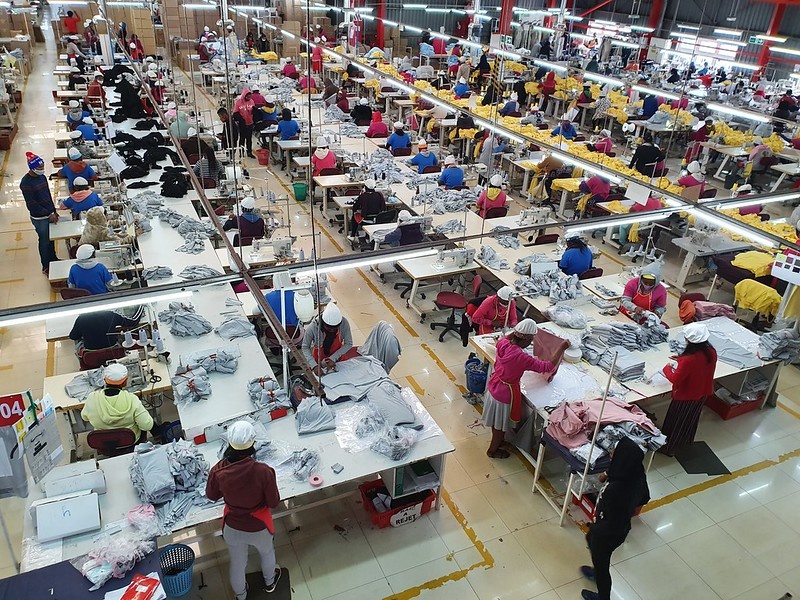10 November, 2022Inspired by training on the International Labour Organization Convention 190 to eliminate violence and harassment in the world of work facilitated by IndustriALL Global Union, the workers in Madagascar’s textile and garment industries are devising ways to deal with gender-based violence and harassment (GBVH) in their factories.
For example, workers at Marine et Moi formed a committee to fight GBVH at their factory in Antananarivo. Speaking at a training workshop attended by 30 participants, 22 women and eight men, from IndustriALL affiliates SEKRIMA, SEMPIZOF, and SVS, from 7-8 November, which focused on sexual harassment and how to reduce the risk factors, the workers said the committee met and discussed an action plan. The workshop follows on a GBVH workshop held in July.
Participants said they were engaging their enterprise committees on GBVH and carrying out awareness campaigns to sensitize workers on fundamental rights at work. GBVH is also included in union recruitment and organizing activities. The workers also identified social dialogue as another platform that is useful to the campaign, and for the ratification of Convention 190 by Madagascar. The workers said the campaigns should include the workers’ rights to maternity protection, health and safety at work, and social protection.
The workers identified gender discrimination as stressful to women workers in the factories and made a commitment to confront it through their union activities and campaigns. The workers also said decent wages are key to addressing GBVH as low wages and precarious working conditions increase vulnerability of women.

In the many testimonies that were shared in the workshop, the workers said GBVH took many forms from demanding sex to extortion. Financial forms, especially bribes for women to keep their jobs, deprived the workers of their hard-earned wages. In some instances, women paid monthly bribes of up to 20 per cent of their wages.
At the factories, some women workers said they shared toilets with men, which violated their privacy. Further, some changing rooms used by both male and female workers were in open spaces next to offices and had no privacy. Sometimes supervisors stopped women workers from going to the toilet by yelling through the public address system in the factory that they must go back to their workstation.
Harmful cultural practices that discriminated against women, domestic violence, and a justice system that did not give stiffer sentences to perpetrators, increased the risk to GBVH.
There were deeper discussions on what is sexual harassment and its different forms in the world of work. Discussions included social practices that privileged men while oppressing women.
Holitiana Randrianarimanana, a gender expert, who facilitated at the workshop said:
“It is important for unions to work with non-governmental organizations and civil society organizations on ending GBVH in Madagascar.”
Remi Botoudi, the chairperson of the national council for IndustriALL affiliates in Madagascar said:
“Unions must continue to campaign for social dialogue on GBVH and educate members on the issue.”
Armelle Seby, IndustriALL director for gender said:
“As trade unions, we must break the cycle of GBVH because it happens on a continuum and is caused by unequal power relations between men and women. Gender inequality is worsened by patriarchy, harmful social and cultural norms, and discrimination. We must address these root causes, carry out risk management, and stop the abuse of power. Additionally, we must find ways to deal with reprisals that women face when they resist GBVH that include dismissals and other forms of harassment.”
Photo credit: ILO, garment factory in Antananarivo








